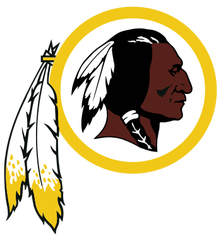 Image Courtesy: Washington Redskins Image Courtesy: Washington Redskins by Tim Roberts, Lecturer When it comes to brand ambassadors, National Football League fans are hard to beat. On any given fall Sunday, hordes of logo-clad, face-painted followers pay top dollar to see their wishes fulfilled or hopes dashed. And, as any Cleveland Browns fans would agree, poor on-field performance doesn’t necessarily translate into a loss of affection. We almost instinctively keep coming back for more. The NFL and its 32 teams have financially capitalized on that seemingly unshakeable brand loyalty, but this year a series of ethically questionable decisions and reactions to players’ criminal acts have placed league officials in full crisis management mode and caused some to call for an NFL Boycott. While the finger-pointing over who knew what when continues in the Ray Rice-Roger Goodell saga, the lesson to be taken away is a no-brainer for any PR practitioner—tell the truth as you know it and when you know it to maintain trust and credibility. What's in a name? But a lesser-known transparency issue involving one NFL team can provide even more valuable ethics lessons, especially to aspiring PR pros. For several years, the Washington Redskins organization has been fending off criticism of the team name, with a growing number of groups calling it racist and offensive and demanding a name change. Owner Dan Snyder has not budged publicly in his support for the name. Last July, a website called Redskins Facts was launched to defend the name, with former Redskins players billed as a steering committee. The About Us section portrayed the site as a grassroots effort by team supporters. But on July 29, the online news site Slate posted a well-researched article linking the site to the Redskins and Burson-Marstellar, a public relations agency known for its crisis management work. The authors tracked the site’s source code to a Burson-Marstellar site, and, in addition, their reporting revealed the Redskins Facts site had the look and feel of other Burson-Marstellar crisis management site templates. A team spokesman danced around the question whether the Redskins was involved with the site and Burson-Marstellar did not even respond to Slate. After the story appeared, however, both Burson-Marstellar and the Redskins acknowledged their involvement in a Reuters article published July 30, with the agency saying through a spokesman it was representing the Redskins. While astroturfing may be too strong of a word considering both the team and the agency acknowledged their roles after the Slate article appeared, the initial lack of transparency and fudging by the Redskins and especially Burson-Marstellar is disturbing. It’s easy to criticize the agency for not being open with Slate about its involvement with the team and the website, as well as not insisting the Redskins make clear on the site its relationship. The Disclosure of Information section in the PRSA Code of Ethics covers that ethical misstep with clarity. What does this mean for PR ethics? As PR practitioners, we advocate for our organizations and clients. But we also are supposed to provide wise, ethical, and informed counsel. Both ethically and strategically, the Burson-Marstellar agency didn’t do the job. Research is the alpha and omega of public relations, and the agency should have insisted on conducting objective, scientific and targeted research to gauge what Redskins’ fans think of the name and the controversy. (The Redskins Facts site does link to ESPN and Washington Post polls showing a plurality of support for the name.) If the research was in line with the other polls and showed fans supported the current name or were apathetic about it, the agency would be obligated to report that. Then, it should take the ethical high road and insist the team be transparent about who was responsible for the website. If the team resisted, it would be appropriate for Burson-Marstellar to turn down the website assignment. It wouldn’t be the only agency that ever “fired” a client over ethical issues. PR pros need to start taking ethical inventories of themselves, their organizations, and their clients. And when they do so, they need to remember the old adage, “When you lay down with dogs, you get fleas.”
1 Comment
|
Archives
February 2024
Categories
All
|
 RSS Feed
RSS Feed
